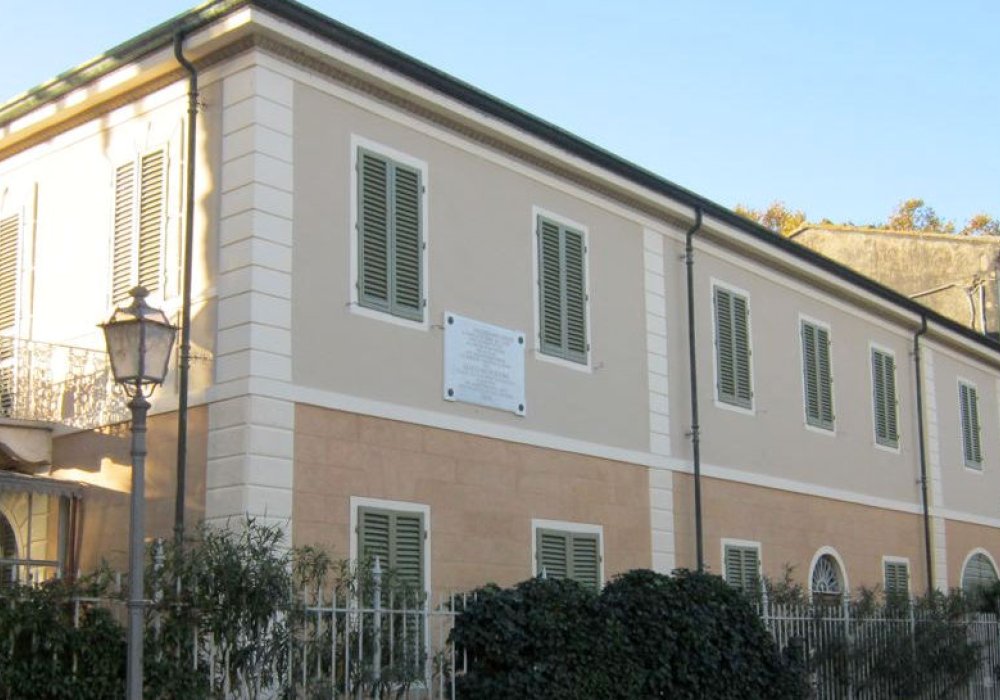Giacomo Puccini - A Family Tree in Music

Giacomo Antonio Domenico Michele Secondo Maria Puccini was born in Lucca on December 22, 1858 on the second floor of the historic family home located in Corte San Lorenzo not far from piazza San Michele in Foro. It was there that he was baptized the next day (with a special permit), perhaps because he was thought to be in danger for his life. Giacomo was the sixth of nine children (7 sisters and two brothers) born to Michele Puccini and Albina Magi.
Giacomo was born into a family with several generations of musical history. It all started with Giacomo or Jacopo Puccini, Giacomo's great-great-grandfather; he was born in a small town called Celle di Val di Roggio, Pescaglia part of the province of Lucca on January 26, 1712. Giacomo Sr. studied music in Bologna and shortly after he moved to Lucca he became the organist of the Cathedral (San Martino) and Master of the Cappella of the Dome of Lucca. His career as a composer, performer and organizer was extremely successful. He died in Lucca in 1781.
His son Antonio Puccini, Giacomo's great-grandfather, was born in Lucca on July 30, 1747 and followed his father's footsteps, from getting a degree in Bologna to being admitted to the Accademia Filarmonica, then becoming the Master of the Cappella and the organist in the Cathedral of Lucca. Like his father he was a very prolific composer of both sacred and secular music. Antonio married Caterina Tesei who was also a musician. He died in Lucca in 1832.
Giacomo Sr.'s grandson Domenico Puccini, Giacomo's grandfather, was also born in Lucca on April 5, 1772. After studying in Bologna he traveled to Naples right when the French troops headed by Napoleon marched and conquered the South of Italy. His music production was different; he composed mainly chamber music and operas. He died prematurely in 1815 and some even suspected he had been killed after the Napoleonic regime collapsed, him being a French sympathizer. Domenico had married Angela Ceru'.
Michele Puccini, Giacomo's father, born in Lucca on November 27, 1813 was also the organist and choirmaster at the Duomo, a composer and a teacher. From 1863 he became the Director of the Musical Institute (Istituto Musicale). He married Albina Magi around 1850. He died fairly young in 1864 when Giacomo was only 5 years old leaving the family in the hands of his wife Albina who despite some financial problems took good care of her children.
Giacomo was sent to study music with his maternal uncle Fortunato Magi who claimed his nephew lacked of talent and did not practice or study enough. Rumor has it that Giacomo was indeed a reckless scoundrel; in order to get some cash he allegedly stole and sold some organ pipes from the Dome and was found guilty for faking the suicide of one of his friends.
Fortunately Giacomo experienced better results in both discipline and music with Carlo Angeloni, a student of his father, who trained him so well that when Giacomo turned 14 years old he became the organist at the Dome of Lucca and was able to provide for his family.
After the death of his mother in 1884, Giacomo fled from Lucca with a married woman, Elvira Bonturi Gemignani. Finding in their passion the courage to defy the scandal generated by their illegal union, they lived at first in Monza, near Milan, where their only son, Antonio, was born. In 1891 they moved to Torre del Lago, a fishing village on Lake Massaciuccoli in Tuscany. This home was to become Puccini's refuge from life, there he composed most of his great works, Manon Lescaut, La Bohème, Tosca and Madama Butterfly to mention a few. Giacomo and Elvira despite their tumultuous relationship were finally able to marry in 1904, after the death of Elvira's husband, Narciso Gemignani.
A chain smoker of Toscano cigars and cigarettes, Puccini began to complain of chronic sore throats towards the end of 1923. Diagnosed with throat cancer, Puccini died in Brussels from complications after undergoing an experimental radiation therapy treatment on 29 November 1924. News of his death reached Rome during a performance of La Bohème. The opera was immediately stopped, and the orchestra played Chopin's Funeral March for the stunned audience who ended with a passionate cry: "Viva Puccini". In 1926 his son arranged for the transfer of his father's remains from Milan to a specially created chapel inside the Puccini villa at Torre del Lago.
The Puccini villa is today a museum and an archive open to the public.
